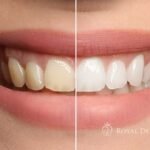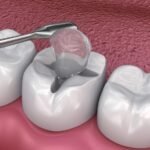Benefits of Dental Implants in Longmont, Colorado
Permanent Solution for Tooth Loss
Dental implants in Longmont Colorado, are designed to be a permanent solution for tooth loss. Unlike dentures or bridges, which may need to be replaced or adjusted over time, dental implants are surgically placed into the jawbone, providing a long-lasting and stable foundation for replacement teeth. This permanence is achieved through a process called osseointegration, where the titanium post of the implant fuses with the jawbone, mimicking the natural tooth root.
Prevention of Jaw Bone Loss
One of the significant benefits of dental implants is their ability to prevent jaw bone loss. When a tooth is lost, the jawbone in that area begins to deteriorate due to lack of stimulation. Dental implants provide the necessary stimulation to the jawbone, preventing bone loss and maintaining the facial structure. This is a crucial advantage over other tooth replacement options like dentures, which do not offer this benefit.
Enhanced Stability and Functionality
Dental implants offer enhanced stability and functionality compared to other tooth replacement options. Because they are anchored securely in the jawbone, they provide a stable base for chewing and speaking. This stability allows for a more natural and comfortable experience, similar to that of natural teeth. Additionally, dental implants do not slip or move like dentures, providing confidence and ease in daily activities.
Dental implants in Longmont, Colorado, offer a range of benefits that make them a preferred choice for tooth replacement. From their permanence to their ability to prevent jaw bone loss and provide enhanced stability, they stand out as a superior option.
- Permanent solution: Long-lasting and stable
- Prevention of jaw bone loss: Maintains facial structure
- Enhanced stability and functionality: Natural and comfortable experience
The Dental Implant Procedure: What to Expect
Initial Consultation and Assessment
The journey to getting dental implants in Longmont, Colorado begins with an initial consultation and assessment. During this visit, your dental specialist will evaluate your oral health, take necessary X-rays, and discuss your treatment options. This step is crucial for creating a personalized treatment plan that addresses your specific needs and goals.
Surgical Placement of the Implant
Once the initial assessment is complete, the next step is the surgical placement of the implant. This involves inserting a titanium post into the jawbone, which acts as a replacement root for the missing tooth. The procedure is typically performed under local anesthesia, ensuring minimal discomfort. After the surgery, a healing period is required to allow the implant to integrate with the bone.
Recovery and Osseointegration
Recovery and osseointegration are critical phases in the dental implant process. Osseointegration refers to the process where the implant fuses with the jawbone, providing a stable foundation for the artificial tooth. This phase can take several months, during which you may be given temporary restorations. Proper care and follow-up visits are essential to ensure successful integration and overall oral health.
The dental implant procedure is a multi-step process that requires time and patience, but the results are well worth the effort.
Choosing the Right Dental Implant Specialist in Longmont
When it comes to dental implants, selecting the right specialist is crucial for ensuring a successful outcome. Finding a qualified dentist in Longmont can make all the difference in your dental implant experience. Here are some key factors to consider when making your choice:
Qualifications to Look For
- Board certification in oral and maxillofacial surgery or periodontology
- Advanced training in implant dentistry
- Membership in professional organizations such as the American Academy of Implant Dentistry (AAID)
Technology and Techniques Used
Modern dental practices in Longmont utilize advanced technology to enhance the accuracy and success of dental implant procedures. Look for a specialist who uses:
- 3D imaging and digital X-rays
- Computer-guided implant placement
- Minimally invasive surgical techniques
Patient Testimonials and Reviews
Reading reviews and testimonials from other patients can provide valuable insights into the quality of care you can expect. Look for feedback on:
- The specialist’s expertise and professionalism
- The comfort and cleanliness of the facility
- The overall patient experience
Choosing the right dental implant specialist in Longmont is a significant step towards achieving a healthy, beautiful smile. Whether you’re looking for a family dentist in Longmont or an emergency dentist in Longmont, make sure to do your research and select a provider who meets your needs and expectations.
Cost and Financing Options for Dental Implants
Breakdown of Costs
Dental implants are considered an investment in your oral health and tend to cost more than other options for tooth replacement. The exact cost of a dental implant treatment plan will vary between patients. Factors that can affect the overall cost of treatment may include:
- The number of dental implants to be placed
- The need for additional procedures such as bone grafting
- Insurance coverage
- Overall health
Insurance Coverage
Insurance coverage for dental implants can vary widely. Some insurance plans may cover a portion of the cost, while others may not cover dental implants at all. It’s important to check with your insurance provider to understand what is covered under your plan. At Boulder Oral Surgery, your treatment plan will be unique to you, and your insurance coverage will be factored into the final cost.
Financing Plans and Payment Options
Our dental office provides financing via CareCredit, which builds payment plans for dental treatments. Whether you qualify for a low or zero interest plan, you can easily pay for more expensive care while staying well within your budget. You can learn more about the process by visiting our Financial & Insurance Policy page or simply calling our office with any questions.
Making dental implants affordable is a priority for us. We take the time to ensure every patient receives a treatment plan that is right for them.
Types of Dental Implants Available in Longmont
When considering dental implants in Longmont, it’s essential to understand the different types available to make an informed decision. Each type of implant serves a unique purpose and offers specific benefits depending on your dental needs.
Single Tooth Implants
Single tooth implants are ideal for replacing individual missing teeth. They consist of a titanium post that is surgically placed into the jawbone, acting as a root for the new tooth. This type of implant provides a permanent and stable solution, ensuring the surrounding teeth remain unaffected.
Implant-Supported Bridges
Implant-supported bridges are used when multiple teeth are missing. Instead of relying on adjacent teeth for support, these bridges are anchored by dental implants. This method offers enhanced stability and prevents the remaining natural teeth from shifting.
All-on-4 Implants
All-on-4 implants are a revolutionary solution for patients who need to replace an entire arch of teeth. This technique uses four strategically placed implants to support a full set of dentures. The result is a secure and natural-looking smile with minimal recovery time.
Understanding the types of dental implants available can help you choose the best option for your specific dental needs. Consult with a qualified specialist in Longmont to determine the most suitable treatment for you.
Post-Procedure Care and Maintenance
After undergoing a dental implant procedure, it is crucial to follow specific post-op instructions to ensure a smooth recovery and long-term success of your implants. Proper care and maintenance can significantly reduce the risk of complications and enhance the longevity of your dental implants.
Immediate Aftercare Tips
- Intermittent Bleeding: Manage bleeding by placing a clean gauze over the area and applying light pressure. Bleeding can continue for several days after surgery.
- Swelling: Swelling can occur for up to 72 hours following the procedure and sometimes last over a week. Use a cold compress on the outside of your mouth to reduce swelling and minimize discomfort.
- General Discomfort: Alleviate discomfort by taking prescribed or over-the-counter pain medication.
Long-Term Maintenance
- Oral Hygiene: Maintain excellent oral hygiene by brushing twice a day and flossing daily. Use a soft-bristled toothbrush and non-abrasive toothpaste.
- Regular Check-ups: Schedule regular dental check-ups to monitor the condition of your implants and overall oral health.
- Avoid Hard Foods: Refrain from chewing hard foods like ice and hard candies that can damage the implants.
Signs of Potential Complications
- Persistent Pain: If you experience persistent pain that doesn’t subside with medication, contact your dentist.
- Infection: Signs of infection include redness, swelling, and discharge around the implant site.
- Implant Mobility: If the implant feels loose or moves, it is essential to seek immediate dental attention.
Following these guidelines will help ensure the longevity and success of your dental implants, allowing you to enjoy a healthy and confident smile for years to come.
Comparing Dental Implants to Other Tooth Replacement Options
Dental Implants vs. Dentures
Dental implants are often the best solution for replacing missing teeth. They mimic the look, feel, and function of natural teeth and prevent further oral health issues related to tooth loss. Dental implants have the highest success rate of any tooth replacement method. After 10 years, more than 95% of dental implant patients are still enjoying their new teeth! In contrast, dentures can be uncomfortable and may require frequent adjustments.
Dental Implants vs. Bridges
While both dental implants and bridges can replace missing teeth, implants offer a more permanent solution. Bridges typically last 10 to 15 years, whereas dental implants can last anywhere from 25 years to a lifetime. Additionally, implants do not require the alteration of adjacent teeth, which is often necessary with bridges.
Longevity and Durability
Dental implants are considered a long-term investment. In many ways, they tend to be more cost-effective than other tooth replacement options because they typically last significantly longer. Here’s a quick comparison:
| Tooth Replacement Option | Average Lifespan |
| Dental Implants | 25 years to a lifetime |
| Bridges | 10 to 15 years |
| Dentures | 5 to 7 years |
Keep in mind that dental implants are considered a long-term investment. They tend to be more cost-effective than other tooth replacement options because they typically last significantly longer.
Conclusion
Dental implants in Longmont, Colorado, offer a durable, functional, and reliable solution for tooth replacement. With advancements in technology and the expertise of local dental professionals, patients can expect a top-notch experience that includes benefits beyond traditional dentures and bridges. Whether you’re considering dental implants for their permanence, stability, or ability to prevent jaw bone loss, the process is made convenient and comfortable by the skilled practitioners in Longmont. If you have any questions or are ready to take the next step, don’t hesitate to reach out to a local dental office for a consultation. Your journey to a healthier, more confident smile begins here.



